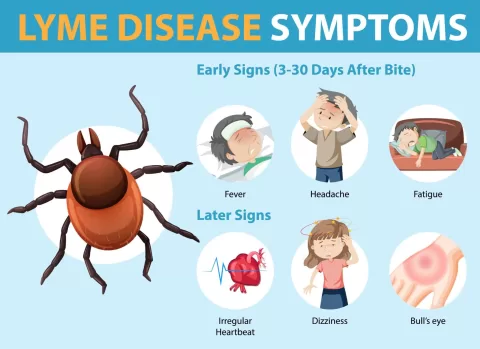Male oral contraceptives are at the forefront of modern family planning, paving the way for a new approach to male birth control. As interest grows, particularly following the Dobbs v. Jackson case, nearly half of surveyed men express eagerness to try a male birth control pill within the next year. However, this evolution in male contraception raises important questions about the safety of male oral contraceptives and potential side effects, which could include health complications such as deep vein thrombosis. While proponents argue that these pills could enhance shared responsibility in family planning, concerns about male contraception risks are becoming increasingly prominent. The debate surrounding this topic illuminates the complex interplay between reproductive health, societal norms, and personal accountability.
In the realm of male reproductive health, the introduction of a contraceptive pill designed for men offers a tantalizing glimpse into options traditionally reserved for women. The term “male contraceptive” encompasses various methods for preventing pregnancy, with oral pills being a notable innovation gaining traction in recent discussions. As researchers explore the efficacy and risks of these male birth control options, it becomes essential to address the potential side effects associated with their use. Conversations surrounding the safety of these contraceptives emphasize a need for cautious consideration of how they might impact both individual health and broader societal dynamics. Ultimately, as the discourse around family planning evolves, alternative terminology such as “male reproductive control” and “masculine birth control methods” come to the forefront, signifying a shift towards shared responsibility in reproductive choices.
Understanding Male Oral Contraceptives
Male oral contraceptives are an emerging topic in family planning discussions. As research develops towards the introduction of a male birth control pill, it’s essential to examine the implications and responsibilities that come with this shift in contraception. While the idea may seem progressive, the societal dynamics surrounding male contraceptives raise questions about their acceptance and the pivotal role they could play in sexual health and responsibility. With nearly half of surveyed men expressing interest in these contraceptives, the possibility of a transformative shift in how men approach family planning is within reach.
However, the introduction of male oral contraceptives doesn’t come without its concerns. Issues surrounding responsibility, safety, and social behavior are paramount. If men are to have the same options as women, we must consider how this will impact relationships and sexual behavior. The prospect of male birth control pills should be met with caution, as accepting this new method could inadvertently lead to a misunderstanding of the responsibilities that accompany sexual freedom.
Risks and Side Effects of Male Contraceptives
Much like the long-established female contraceptives, male oral contraceptives could potentially carry a range of side effects. From weight gain and headaches to more severe conditions like deep vein thrombosis (DVT), the safety of male oral contraceptives should not be underestimated. As we’ve noticed with women, the introduction of any hormonal medications often includes a litany of potential health risks, and there is no reason to assume that male contraceptives will be different. The historical data on the side effects of female contraceptives suggests that more extensive longitudinal studies will be necessary.
Furthermore, understanding the side effects and managing these potential risks will require thorough medical guidance. For many men, navigating the complexities of pharmaceuticals can be daunting without professional assistance. Just as women have had to face the scrutiny and stigma associated with their birth control options, men must also grapple with similar uncertainties regarding the impact of these new medications on their health. The lack of comprehensive understanding within the medical community about how these hormones will interact in a male body is a significant concern that must be addressed.
The Social Implications of Male Contraception
The introduction of male oral contraceptives is likely to have broad social implications. Critics argue that the ability to access male birth control pills could spur irresponsible sexual behaviors, significantly altering the fabric of personal relationships. Concerns about sexual promiscuity arise prominently—there’s a fear that if unintended pregnancies become less of a concern, men might engage in casual sex without considering the emotional and social consequences. The arguments reflect a broader concern about personal responsibility and the moral implications of such choices.
Moreover, societal norms surrounding masculinity and sexual behavior may face tremendous pressure as male contraceptives gain acceptance. This shift could provoke a reevaluation of what it means to have control over reproductive health and how men perceive their roles in intimate relationships. As these conversations evolve, they will not only influence individual behaviors but also the collective understanding of reproductive responsibility in a changing social landscape.
The Future of Male Birth Control Research
As interest in male birth control continues to grow, the research surrounding its development is critical. The R Street Institute has observed shifts in public opinion regarding male contraception, underscoring the demand for innovative solutions in family planning. With technological advancements and increased funding, ongoing research in this area could lead to breakthroughs that will offer men effective and reliable options for contraception.
However, the research must address not only the effectiveness of male oral contraceptives but also the comprehensive understanding of their long-term effects. Engaging in thorough scientific inquiry is essential to ensuring that any products brought to market are safe and beneficial. To foster trust among potential users, transparency in research results and ongoing studies is paramount to support informed decision-making about aids to sexual health.
Male Contraception and Personal Responsibility
The conversation surrounding male oral contraceptives naturally intertwines with the notions of personal responsibility and accountability in sexual relationships. If men are granted the powerful tool of a birth control pill, it raises questions about their commitment to proactive family planning. The implications of shifting responsibilities away from women to include men in this conversation are significant and demand widespread cultural change.
Advocating for shared responsibility means encouraging men to participate actively in discussions about contraception, pregnancy planning, and sexual health. This cultural shift is necessary to ensure that men understand the weight of their decisions and their role within intimate relationships. As society progresses towards a more inclusive approach to contraception, fostering conversations about accountability becomes integral to the successful adoption of male contraceptive options.
Legal and Ethical Considerations for Male Oral Contraceptives
The legal landscape surrounding male contraceptives presents various challenges as we anticipate their market introduction. The R Street Institute’s opposition to male oral contraceptives highlights concern over potential overreach regarding women’s options in reproductive health. Maintaining a balance between providing men with similar contraceptive choices and ensuring women’s rights must be prioritized.
Ethically, the introduction of male contraceptives raises questions about informed consent and access to healthcare. Policymakers must prioritize the ethical implications that accompany these new medications. Conversations involving male contraceptive pills should not replicate the historical stigmas surrounding female contraceptives but instead advocate for equitable access and informed choices for all individuals involved.
Accessibility and Guidance for Male Contraceptives
The availability of male oral contraceptives must be approached with careful consideration regarding accessibility and user education. Just as women often require guidance on managing their birth control methods, men will likely need support when navigating their new options. Ensuring that these contraceptives are available through prescription channels could facilitate safer usage and foster responsible attitudes toward male contraceptive practices.
Medical professionals play a pivotal role in helping both men and women understand the implications of these options. By creating informational resources and support systems, we can empower men to take charge of their reproductive health. Proper guidance will ultimately lead to a healthier and informed society ready to embrace the concept of male oral contraceptives.
Public Awareness Campaigns on Male Contraception
As male oral contraceptives approach the horizon of possibility, public awareness campaigns will be essential in educating society about their availability and implications. Effectively communicating the benefits and potential risks associated with these medications will provide a foundation for informed decision-making among men. This outreach can address societal stigma and promote a culture of shared responsibility in family planning.
Such campaigns should also focus on making accurate information about male contraception accessible to various demographics. By ensuring that conversations about male birth control are inclusive and comprehensive, we can encourage a proactive approach to reproductive health. Public campaigns can serve to demystify the process, making it easier for men to engage with the pertinent discussions surrounding contraceptive options.
Navigating Male and Female Contraceptive Options
As male oral contraceptives are being considered for market availability, understanding the full spectrum of contraceptive options remains critical. Both men and women deserve comprehensive education regarding the available methods, including hormonal and non-hormonal alternatives. It is essential to normalize conversations about all forms of contraception, equipping individuals with the knowledge they need to make informed choices.
Educational initiatives within communities can aid in bridging the knowledge gap. By offering workshops and providing resources, we can foster an environment where both genders feel empowered to discuss their reproductive health openly. Familiarity with the benefits and side effects of various contraceptive methods will cultivate a culture that supports informed decision-making and personal responsibility.
Frequently Asked Questions
What are the potential side effects of male oral contraceptives?
Male oral contraceptives may carry a variety of side effects, similar to those seen in female contraceptives. These can include headaches, nausea, weight gain, and more serious risks such as deep vein thrombosis (DVT). Given the potential side effects of male contraceptives, men should be fully informed about these risks before considering this family planning method.
What are the risks associated with male contraception?
The risks associated with male contraception, particularly oral contraceptives, include hormonal imbalances and specific health conditions like increased risk of blood clots. With any new male birth control options, it’s essential to understand the potential dangers and evaluate them thoroughly before use.
Is the safety of male oral contraceptives guaranteed?
While research on male oral contraceptives is ongoing, their safety is not guaranteed. As with any medication, potential side effects and individual health concerns need to be carefully considered. Men should consult with healthcare professionals to discuss the safety of male birth control pills.
Why is it important to consider the societal impact of male oral contraceptives?
The introduction of male oral contraceptives could influence societal norms around personal responsibility and sexual behavior. Concerns exist that easier access to contraception might lead to increased sexual promiscuity, which warrants careful examination of the broader implications of male contraception.
What has research from the R Street Institute said about male oral contraceptives?
The R Street Institute has raised concerns about the implications of male oral contraceptives, arguing that while they could provide family planning benefits, there are potential risks, including side effects and societal changes that could undermine personal accountability.
How do male oral contraceptives compare to female contraceptive methods?
Male oral contraceptives are still in development, so their long-term effects and efficacy compared to established female methods are not fully understood. Both gender’s contraceptives may carry risks and side effects, but the extent and nature of these must be assessed through thorough research.
What role should healthcare providers play in male contraception?
Healthcare providers should play a critical role in educating men about male oral contraceptives, including how to use them safely and the potential side effects. Professional guidance is essential to ensure that men can make informed choices about their sexual health.
What measures should be taken before the release of male oral contraceptives?
Before the release of male oral contraceptives, comprehensive research should be conducted to assess their safety and efficacy. Regulatory oversight is crucial, including keeping these contraceptives behind a prescription barrier to ensure proper guidance and management of potential side effects.
| Key Point | Details |
|---|---|
| Increase in Interest | 10% increase in interest for male contraceptives following Dobbs v. Jackson. |
| Risk of Promiscuity | Reduced pregnancy risk may encourage reckless sexual behavior among men. |
| Side Effects | Potential side effects may include weight gain and blood clots (DVT). |
| Lack of Research | The scientific understanding of how OCs work is still unclear, even after decades. |
| Need for Prescription | Male OCs should require a prescription to ensure proper guidance from a medical provider. |
| Conclusion | Nothing is more important than protecting men from potential harm caused by male OCs. |
Summary
Male oral contraceptives have emerged as a controversial topic within the discourse of family planning. While the prospect of contraceptive pills for men may present new avenues for shared responsibility, the associated risks—ranging from increased sexual promiscuity to significant health concerns—cannot be understated. As research progresses, it is essential to prioritize safety and effective guidance for potential users of male oral contraceptives.
The content provided on this blog (e.g., symptom descriptions, health tips, or general advice) is for informational purposes only and is not a substitute for professional medical advice, diagnosis, or treatment. Always seek the guidance of your physician or other qualified healthcare provider with any questions you may have regarding a medical condition. Never disregard professional medical advice or delay seeking it because of something you have read on this website. If you believe you may have a medical emergency, call your doctor or emergency services immediately. Reliance on any information provided by this blog is solely at your own risk.







